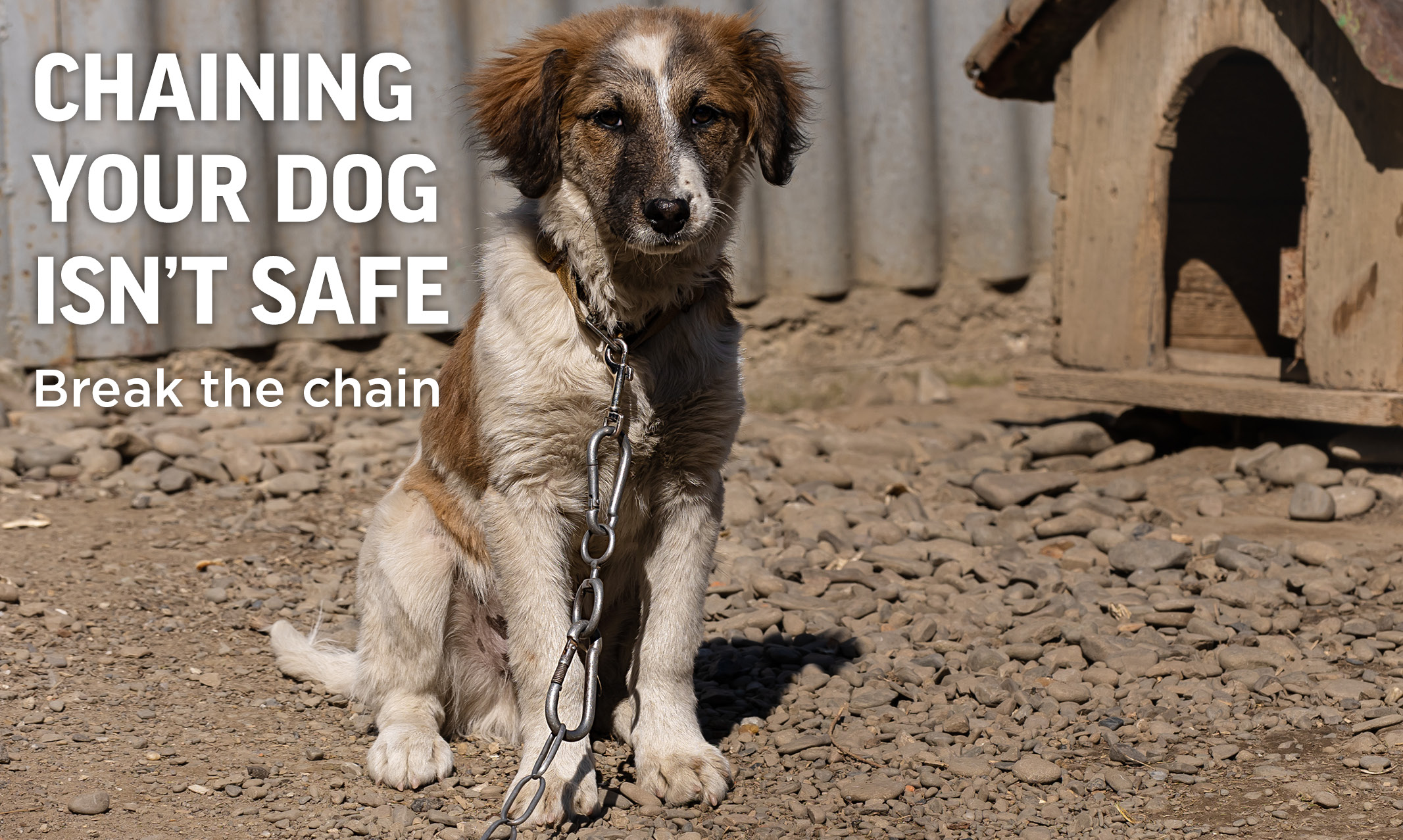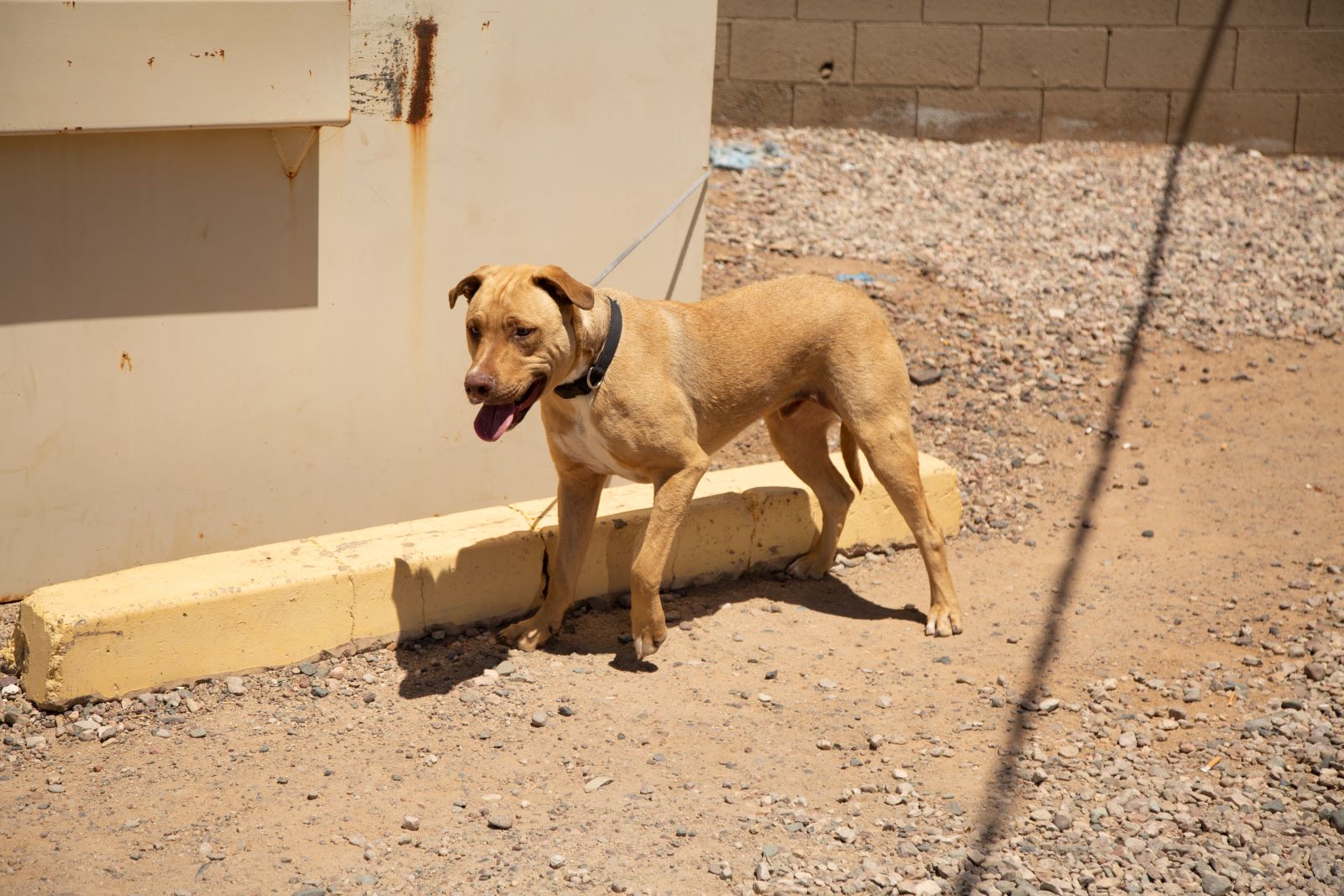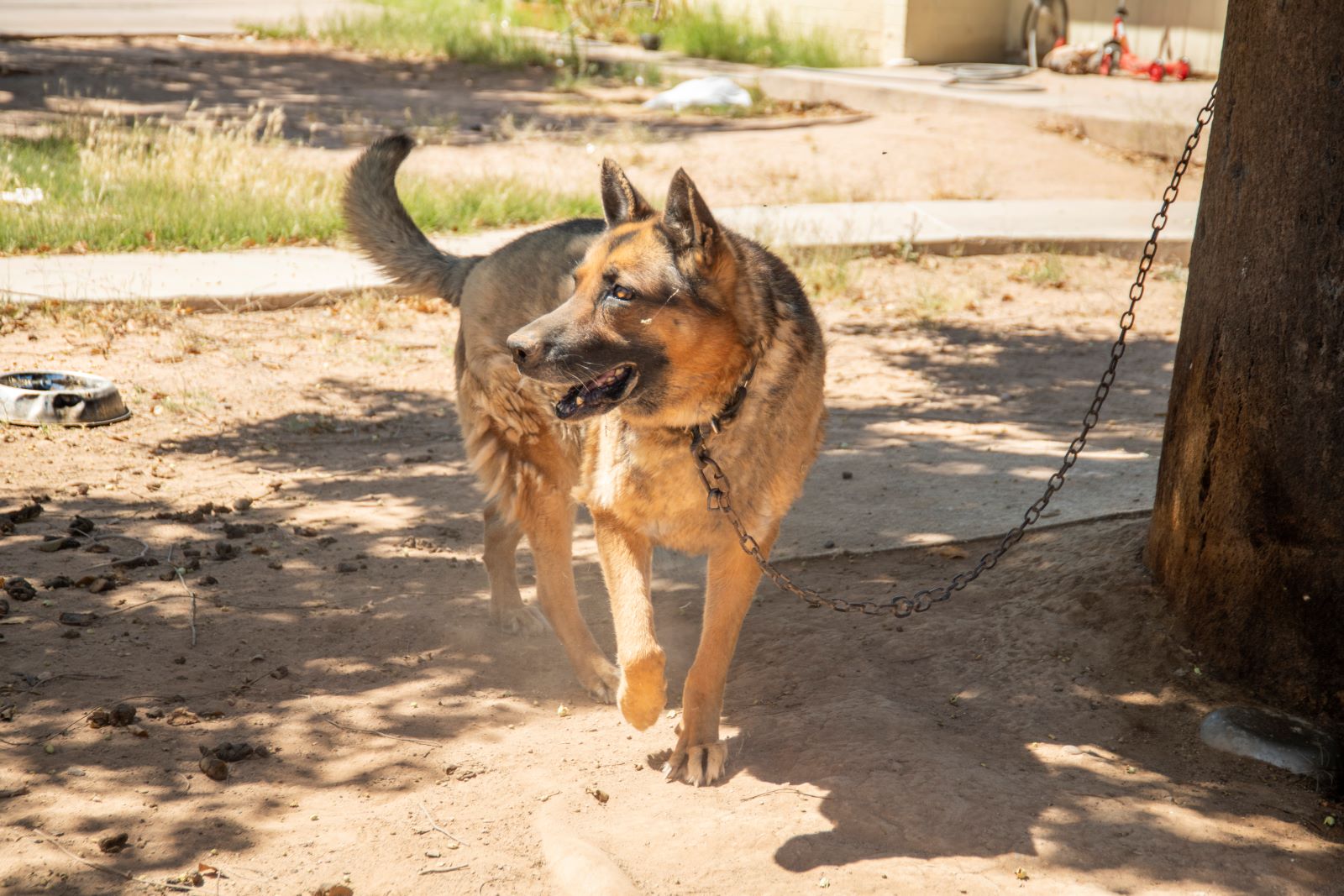Break the Chain: Don’t Tether Your Dog

Chaining or tethering your dog outside is dangerous. The Valley’s scorching summer temps turn deadly quickly and tethered dogs can easily become tangled, trapped without water, food or shelter. Break the chain. Don’t tether.

Dangers of Chaining or Tethering Your Dog
- It’s easy for a dog to wrap a tether around objects in the yard and get stuck, preventing them from accessing water and shelter.
- Tethers can cause serious injury by wrapping tightly around limbs or becoming embedded in a dog’s neck.
- Studies show that even friendly dogs can become unhappy, anxious, neurotic and aggressive when kept on a chain or tether.
- Tethered dogs are more susceptible to insect bites, parasites and cruel attacks by humans and other animals.
Benefits of Keeping a Dog Inside Your Home
- A healthier you! Studies have shown that dogs can reduce stress and help their people have better physical and mental health.
- A longer life for them! Dogs kept inside the home generally live longer than dogs kept outside.
- A protected home! A dog kept indoors is a strong deterrent for thieves trying to break-in. A chained dog kept outside can’t protect your whole property.
What is the law?
City of Phoenix law states that an owner shall not restrain a dog outside by use of a restraint that unreasonably limits the dog’s movement or during extreme weather conditions, including when the temperature is above 100 degrees (or below 32 degrees), a heat advisory has been issued or monsoon, hurricane, tropical-storm, dust-storm or tornado warning has been issued . A restraint unreasonably limits a dog’s movement if the restraint:
- Uses a collar that is not properly fitted to the dog
- Is in length shorter than 10 feet
- Causes injury to the dog
- Does not permit the dog access to food, water, shade, dry ground, or shelter.Adequate shelter is defined as:
- Structurally sound and accessible year-round to protect the animal from extreme weather conditions.
- Sufficient in size to allow animals to enter, stand, turn around and lie down while also having adequate ventilation and drainage.
- Chains are not permitted as a tethering mechanism
Other local tethering ordinances include:
- Glendale prohibits tethering for the purpose of animal confinement, regardless of weather conditions.
- Tempe prohibits tethering when the temperature is below 45 degrees or above 85 degrees, and pets must be supervised by somebody physically at the property.
- Chandler prohibits the tethering of pets when the temperature is below 32 degrees or above 100 degrees or if a heat or extreme weather advisory has been issued.
We also recommend these additional safety guidelines:
- If you have no choice but to tether and it is legal to do so where you live, the dog should have a long tether and be free of obstacles that might get them tangled.
- Collars should be fitted properly.
- The water bowl should be secured so the dog cannot tip it over.
- Metal heats up! Both food and water should be in plastic, not metal, bowls.
- Dogs should not be left unsupervised for long periods of time.
- During excessive heat warnings, bring pets indoors.

Alternatives to Tethering
- Fencing: Create a fenced area for your pet. If your dog can jump a fence, consider installing a 45-degree extension. If your dog digs under fences, you can place large rocks or a barrier at the base of the fence.
- Dog runs: Install a dog run that ensures adequate access to food, water and shelter.
- Dog Training: Are you keeping your pet outdoors because of behavior issues? Your pet may just need a little basic training to become the perfect indoor pet. AHS offers both group classes and private training lessons. Learn more.
Report Animal Abuse
If you see a chained or tethered dog and suspect it is in danger or being abused or neglected, contact our Field Dispatch team at 602.997.7585, ext. 2073 or fill out our online form (available daily, 8 AM – 6 PM).
